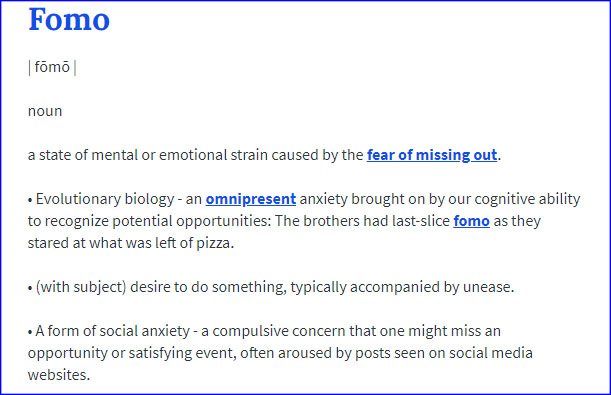
Picture this: You spend a long day toiling away at work. You come home, catch a breath, open Instagram and start scrolling.
And it begins.
One after the other, you swipe through photos upon photos of people at the beach, drinking margaritas and having the time of their lives.
You see pictures of a lit-up Eiffel Tower, Amsterdam canals, the Colosseum, and everyone looks tirelessly good. Like they fit the bill.
If there’s a life worth living, it has to be theirs.
The feeling rings true – we are all perpetually reeling from a sense of unease about missing out on doing things. Anthropologically, it is in our nature to want to be part of more experiences, and it seems reasonable even from an evolutionary perspective. If we don’t participate, we will be left behind.
SO WHAT IS TRAVEL FOMO, AND WHY IS IT A BIG DEAL?
When we compare the desire to belong and be part of more experiences, to the incessant fear of missing out on them, that’s where things start to go south.
You see, we are perhaps the most documented generation ever. We take photos of our food before eating it. We fill our camera feeds with 1050 retakes to get the perfect selfie. We post pictures of anything that adds to our online image of perfection.
Social media has become a sort of resume for our personal lives.
The first thing we do upon waking up every day is to check our phones. And here’s where we’ll see Hannah from @travelislife on Instagram, gallivanting in the Caribbean, with hashtags like #wanderlust and #Ilivetotravel stuffed in the captions.
When our lives don’t seem qualifiable for those hashtags, it weighs down our sense of self. We put pressure on ourselves to keep up – to look perfect, to play the part.
THE JET SET LIFESTYLE
Do you ever come back from a trip feeling exhausted as hell? Almost like you need another few days off to recover from that vacation?
With the internet screaming hoarse about must-do’s, travel blogs insisting on places you HAVE to visit before you turn 25 (guilty of doing this myself, but a girl’s gotta eat), vlogs and videos throwing pictures from exotic locations on your screen – travel becomes more of an exercise as we desperately try to zip from one destination to another in the quest to cover more ground.
THERE’S SO MUCH TO DO. If we don’t go where everyone else is heading, we’ll miss out. And what’ll we post on our social media feeds? Surely our friends will assume we don’t have much of a life.
The planet is grappling with the damage that travel, as an industry, has inflicted on it. The last thing it needs is for us to be jet setting from destination to destination with no concern for the consequences.
Travel FOMO doesn’t do anyone much good.
The fear of missing out on travel shouldn’t come in the way of feeling fulfilled.
[You Might Like: 10 Easy Ways to Make Your Travels Plastic-Free]
10 WAYS TO BEAT TRAVEL FOMO
1. Understand Where Bucket Lists Come From
Online search engines are rife with travel bucket lists. You look up the term on Google and you’ll instantly be supplied with a barrage of options which can be sorted by continent, country, even city for the matter.
To cut through all the noise, it might help if we look at how bucket lists really come into being.
Think about it this way: At some point, a person visited Venice, took a gondola ride, and really liked the experience. They returned home and told their family and friends about it. Word spread. More and more people came in the know of Venetian gondola rides. Some of them traveled all the way to take a ride so they could partake in the experience (FOMO is not just a millennial thing – safe to say it has existed since forever). They further told more people because they needed the validation. And then BAM – Venetian gondolas became a rage.
Okay, this may not have been the precise order of things, but I’m pretty sure it has some degree of accuracy.
Travel bucket lists are a human construct. Places start picking up steam, more tourists are enticed to visit, the idea propagates, and the destination in question ends up on a list. From there, destinations bounce around from one bucket list to another.
Especially with social media, the viral potential of such lists skyrockets.
Countries like Croatia and Malta were never popular on bucket lists, but then Game of Thrones happened (a big chunk of the show was shot in these locations). Now, tourists throng these countries all through the year. They’re pretty much on every bucket list. They were on mine, till I visited.
Not that they aren’t worth the hype. But a destination’s soaring fame shouldn’t oblige you to visit it.
[You Might Like: 10 Gorgeous European Cities You Have to See to Believe]
2. Travel to Less Frequented Places
Branching from the point above: Tourist destinations have a popularity curve that is sure to hit an inflection point, sometime. It, then, invariably ends in overkill.
Excessive tourism not only damages historic sites and preserved cities around the world, it also forces locals out of their homes and onto the sidelines. And can we even blame them?
The Pont des Arts over the Seine was being weighed down by innumerable locks (they had to be eventually removed); prices in London are hitting through the roof; Mona Lisa has low-key stopped smiling (no, SERIOUSLY!) 🙁
We all want to travel responsibly whilst maximizing our experience. By choosing to travel to less frequented, off-the-beaten path destinations, we can reduce our footprint and support tourism where it is needed and deserved. We can discover new gems along the way. We can help burgeoning economies.
Another MASSIVE upside to traveling to less “popular” places is that we can truly experience everything they offer. I mean, visiting an iconic landmark overrun by tourists doesn’t really give you an opportunity to have a local experience – you’re literally surrounded by tourists. The locals, most likely, would have packed up and moved to the suburbs.
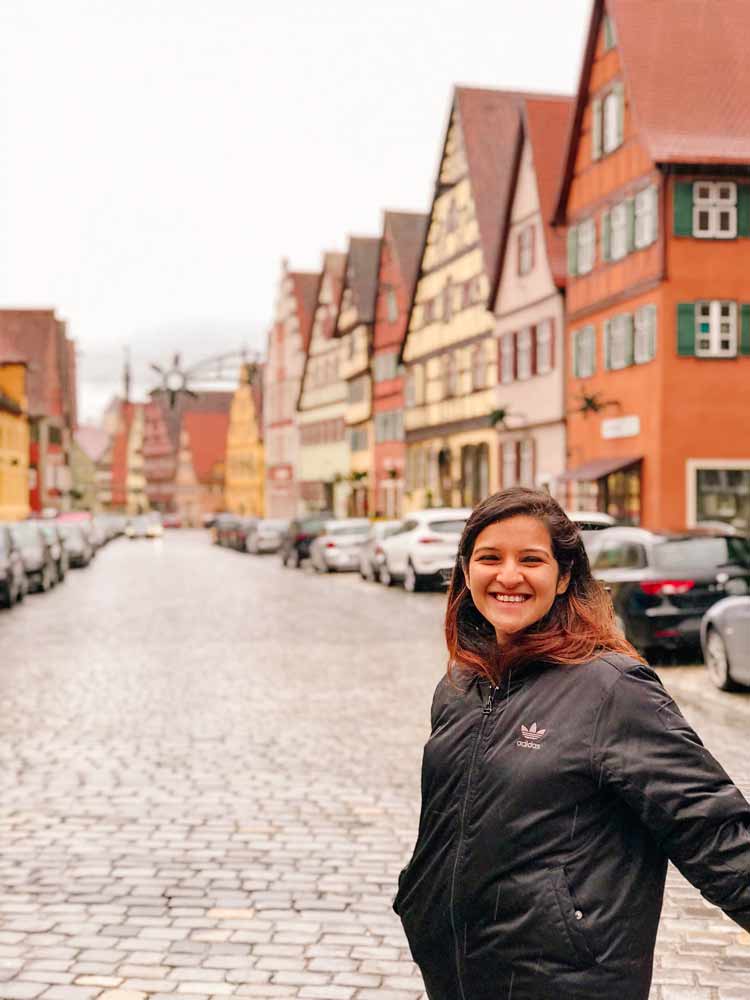
3. Look for a Deeper Meaning in Travel
After returning from a trip, we often recall specific stories. The little banter with our Airbnb hosts, the amazing food at a restaurant, the Uber driver who gave us tons of recommendations on what all to do.
We can recall the crashing of the waves at the beach, how the wind felt on our skin, the view at the summit after a long hike.
We can feel closer to a distant culture, recognize the sound of a foreign language, chance upon a sort of familiarity in a city that we never knew we could find.
We also feel closer to people, as we learn to understand how we’re all driven by the same wants and needs, irrespective of which part of the world we are in.
That, I feel, is the purpose of travel.
It isn’t about crossing items off a list; it’s about curating experiences that shape our perspective. It’s about getting to know a place, embracing the culture, and using this knowledge to discover something about ourselves that we didn’t have a clue about.
While I quite eating meat much later, the seed was planted in my head while on a visit to Nepal in 2016.
Animal sacrifice is customary at the Manakamana Temple near Pokhara. It was there that I witnessed the slaughter of a goat, which led me to give up eating meat. I relapsed within weeks, but the blood, gore and the screams of the innocent animal continued to surface in my mind off and on.
Years later I saw another documentary called “Earthlings” and that only compounded what I had learned on my visit to Nepal. That was when I swore off meat for good.
Sometimes, we have no idea how a travel experience can change us.
That’s the thing about travel: it moves you. It makes you face your demons and appreciate your strengths. It comforts you. It helps you identify parts of you that have always stayed in the shadows. It helps you find the light – VERY cliched but so unbelievably true.
Now, these experiences mean zilch if you’re whizzing from one place to another. If it’s always go-go-go, you’ll miss out on the satisfaction of learning from your travels and letting them change you.
4. Recognize that Not Every Place is Meant for You
If you know me, you know I make my disappointment with Amsterdam very apparent. I may be biased but I don’t think another visit will change my opinion significantly.
Over the years, I’ve realized that one’s propensity to like a place varies greatly based on when one visits, the company, how one spends time there, and what point in life one is at. So, as a woman in her late twenties, I found Amsterdam incredibly underwhelming. The draw of the city – the marijuana, parties, and debauchery didn’t fascinate me. (I realize I sound like a BORING OLD GRANDMA here but it is what it is! 😉 )
If we let all our travel plans ride on visiting what’s on every list on the internet, there is a high possibility we end up going to places we don’t like. And that’s completely counterintuitive to the idea of travel. If you’re going to spend a bomb traveling to a new destination, it’d better get you maximum bang for your buck.
So let’s not feel unnecessary FOMO about the place we’re not visiting just yet – as a matter of fact, it might not charm us at all.
[Related: 10 Reasons I Didn't Like Amsterdam]
5. Pitch Yourself Against You
At the end of the day, there will always be someone who has been to more continents than you, visited more countries, perhaps lived in even more.
In the same vein, you’ll also always find people who have done far less than you.
Looking at the latter set of people makes you feel cool. Looking at the former makes you feel miserable.
Rather than letting envy (or arrogance) get the better of us, how about we compete against ourselves? How about we flip the script and focus on what lessons WE have taken home from our travels? How we’ve grown? Have we learned anything at all?
Because if we haven’t, one country or 195, it will mean nothing.
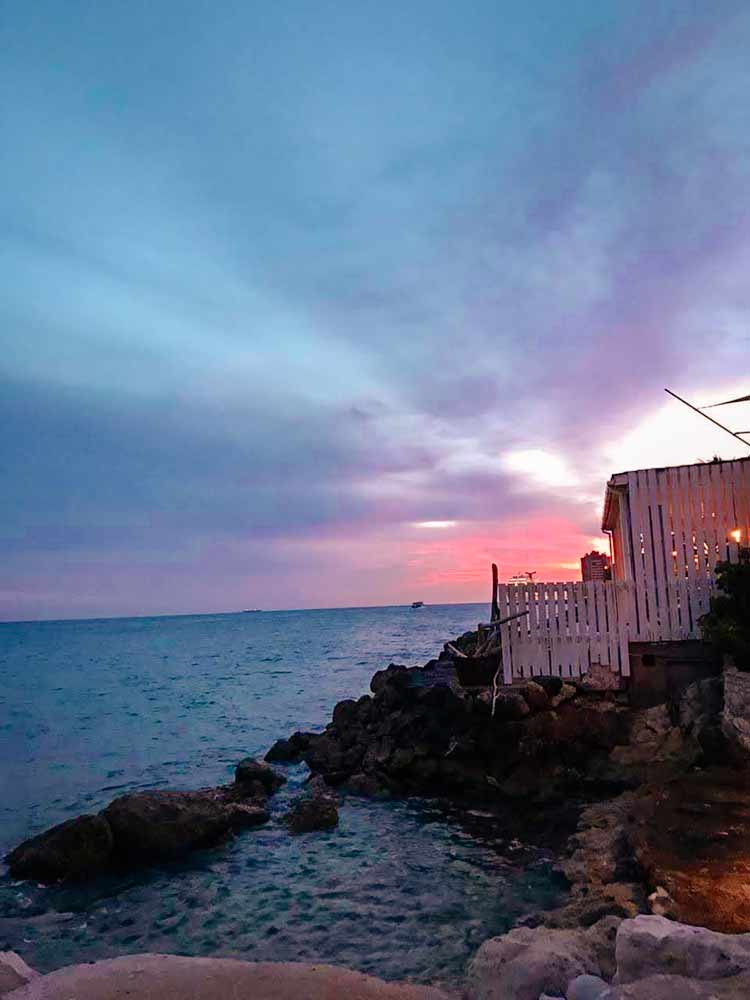
[You Might Like: Why Everybody's Stupid and What to Do about It]
6. Community over Competition
Isn’t it amazing how travel gives us the ability to see and learn so much about the world we live in? We can explore enormous diversity and witness lifestyles completely different from ours.
Even better – Social media offers a fantastic platform to share our learnings for everyone else to partake in. We can pick out nuggets from our travels and build stories out of them. We can use our travel experiences to make the world a closer-knit place.
So let’s put our experiences out there and make people feel something. Start a blog. Write a book. Talk about the places we’ve been. Learn from others.
We’re not competing against each other. It’s not about who has done more versus who’s done less. It’s about building a wider community. It’s about helping ourselves see more of the world through each others’ eyes.
The ultimate goal of travel is not about one-upping others. It is about creating more collected, more accessible world.
7. Drop Out of The Numbers Game
If I had a dime for every time I’m asked about how many countries I’ve been to, I’d be rolling in moolah 😉
Our obsession with the big number is real. You’ll often see travel influencers flaunt the number of countries they’ve traveled to in their Instagram bios. People throw about the number in dinner conversations, among friends, and on Tinder chats, like it’s a badge of honor.
I mean, I DON’T WANT TO GIVE A CRAP. I want to stop fixating on adding countries to my list in a way to validate my right to travel.
And while we’re on the subject, let’s face it – travel IS a privilege. It doesn’t always have to be expensive, but it CAN punch a massive hole in your wallet when you’re embarking on a list of “100 countries to visit before you’re 30”.
So, the fact that someone hasn’t been to a lot of countries, or has never been abroad for the matter, doesn’t mean that person isn’t entitled to travel and grow at his/her own pace.
Besides, slow travel has a lot of upsides, for the planet and for ourselves as humans. Someone who has been to a place and spent considerable time there is likely to have a deeper understanding of it than someone who’s spent 3 days.
Think about this: I could spend a 2-hour airport layover in a country I haven’t been to. On paper, it still counts as a visit.
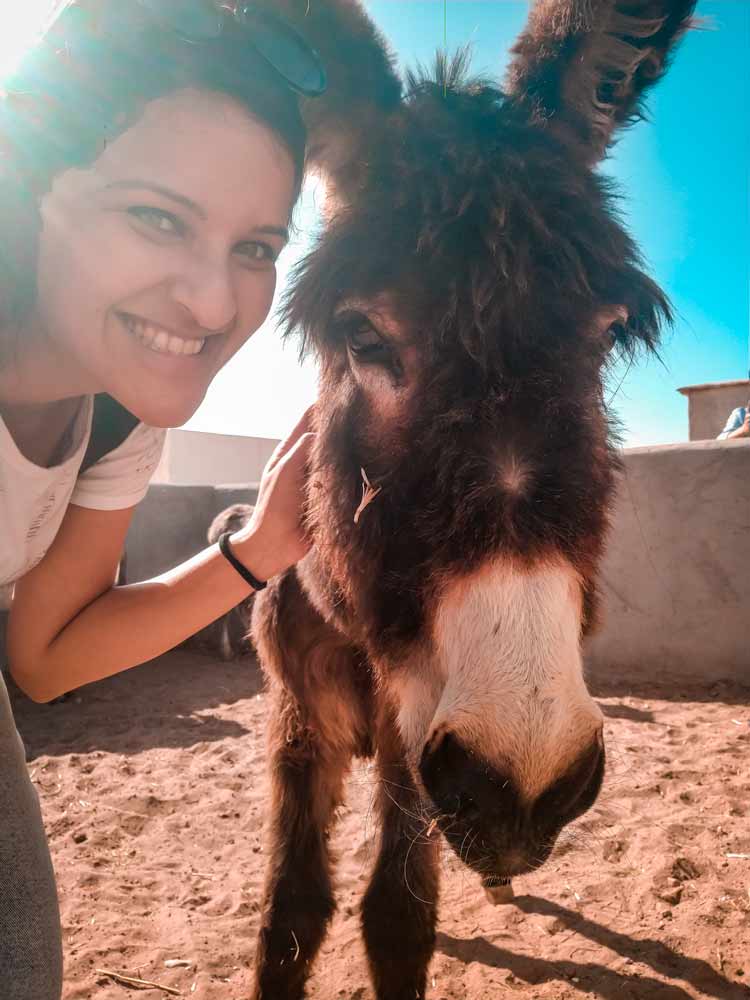
8. Focus on Collecting Stories
Instead of jostling through crowds elbowing each other to click a picture of the Little Mermaid in Copenhagen, we can shift our focus to gathering experiences.
We can have a chance conversation at a corner cafe in Bergamo.
We can discover the best burger of our life in a hole-in-the-wall pub in Manchester.
We can learn that a common word in our native language is also used in the language of the country we are visiting.
We can also revel in the sheer delight of finding vegan cheesecake at an unassuming little bakery in our own city.
Don’t these things sound better than ticking off places from a list of “The Most Instagrammable Spots in the World”? Don’t these stories make us look back at our travels and smile and feel grateful?
Isn’t this what we travel for?
And I’ll tell you something even cooler:
Your stories are yours. Someone may have visited the Grand Canyon or taken a selfie at the Great Wall of China, but ONLY you have had the experience of kissing your partner on a Parisian sidewalk. ONLY you have a story about how you bought that overpriced souvenir that broke on the way back home… I mean, YOU bought it 😉 ONLY you can describe the taste of the beer at that family-owned brewery you visited in a small village in Germany. These are YOUR experiences!
Your experiences may be good or bad, but they’ll always give you a great bar story.
So let’s not feel pressured by bucket lists. Ever heard someone discuss bucket lists at bars? I haven’t.
9. Do Things that Satiate Your Wanderlust
Read a book set in Arab Africa. Watch a documentary about qoukkas in Australia. Look up movies set in exotic locations and add them to your watchlist.
If you’re reading this, you Iive in a world that is robustly interconnected. You may not be able to catch a fight and head to Tahiti on a whim, but you can find an inordinate amount of information about the island online and offline.
This, too, is a privilege, if you think about it; we’re all privileged to enjoy the perks of the internet, great books, movies and various other resources.
Of course it may not be feasible for all of us to travel 365 days in a year. But that doesn’t mean we have to live in silos.
We can always fuel our quest for knowledge and curiosity for the world.
We can learn new languages, indulge in culinary experiments, play around with exotic spices and flavors, learn about cultures. We can read myriad books.
We can ask questions and seek answers.
Sure, these aren’t substitutes for real, physical travel.
But why stress about that one blogger backpacking across South America, when you can pick up a book and learn about the history of the continent’s colonization? It’ll most likely teach you so much more than the blogger would ever care to know.

10. Appreciate that You Can’t Do Everything
Truth bomb coming up: You can’t do everything. Unless you’re Ronaldo. Or a unicorn.
We can’t POSSIBLY see everything there is to see. Even someone who has been to every single country in the world (there are a few people who have) cannot claim they’ve seen it all.
And that’s pretty amazing if you ask me: how boring would travel be, otherwise? The lure lies in the continued pursuit of travel. If you could reach up and touch the sky, you’d lose your awe of it.
If you and I could indeed see and learn everything travel has to offer, we’d quickly grow out of it.
And it goes without saying that there will be times when you won’t be able to travel. Sometimes (perhaps once in a hundred years) there will be a pandemic quashing your plans. Sometimes you won’t get leave from work. Or you won’t have the funds to sponsor your trip. Or you’ll have other personal issues to deal with.
And you WILL miss out. But that will only help prop you up for your next getaway. Acknowledging we can’t do everything relieves us from the obligation of doing everything. READ THAT AGAIN.
So, to sum up – here are 10 ways we can beat travel FOMO (or, at the very least, try):
- Understand Where Bucket Lists Come From
- Travel to Less Frequented Places
- Look for a Deeper Meaning in Travel
- Recognize that Not Every Place is Meant for You
- Pitch Yourself Against You
- Community over Competition
- Drop Out of The Numbers Game
- Focus on Collecting Stories
- Do Things that Satiate Your Wanderlust
- Appreciate that You Can’t Do Everything
You know what’s cooler than FOMO (and 100% comes with a stamp of millennial approval)?
Travel JOMO. a.k.a. Joy of Missing Out.
We concede that we can’t do everything. And we find happiness in our own travel experiences, feel exhilarated about our own travel plans, and practice doing more things we love to do – for ourselves, not for the paps! ?
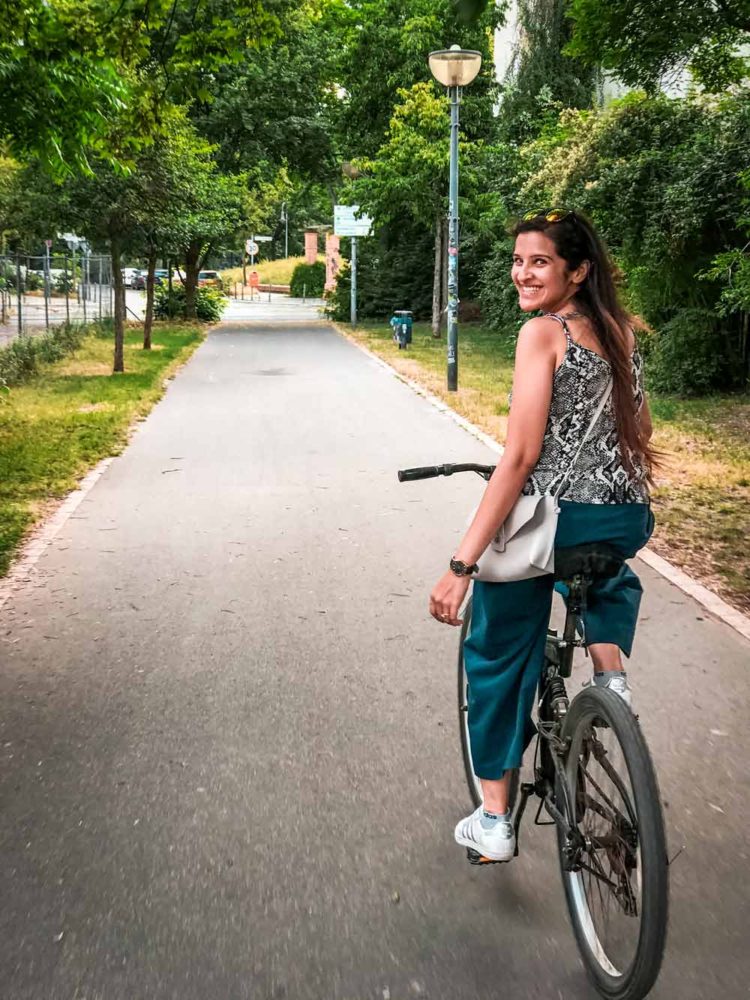
How do you deal with travel FOMO? Do you have more tips to share? Please drop them in the comments if you do. Let’s talk!




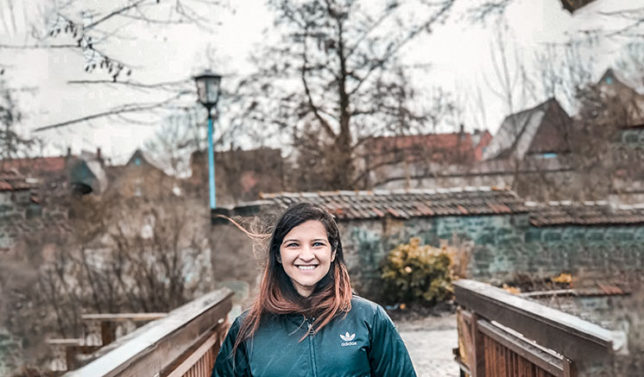
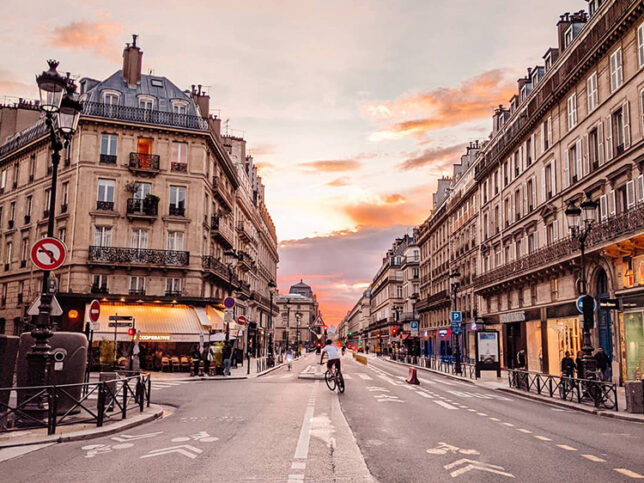
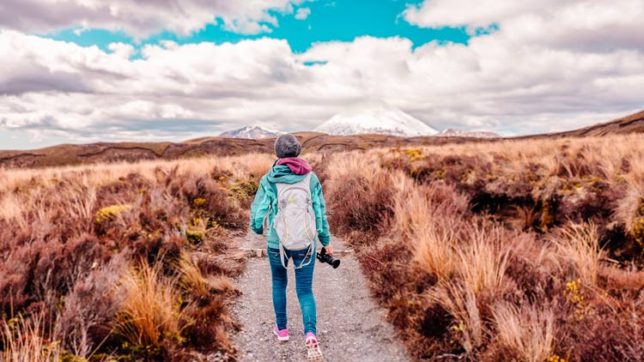

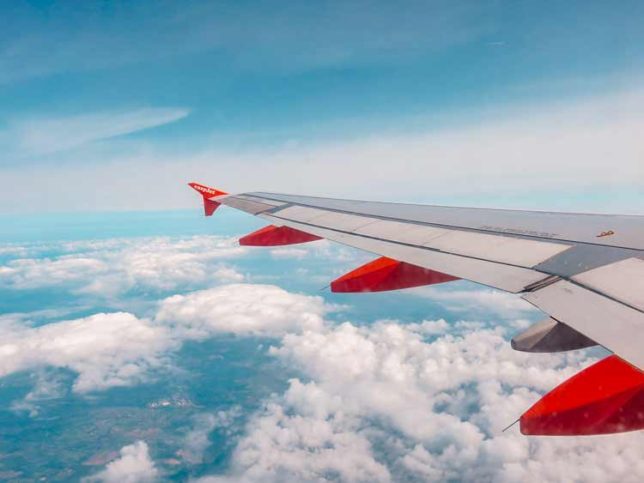
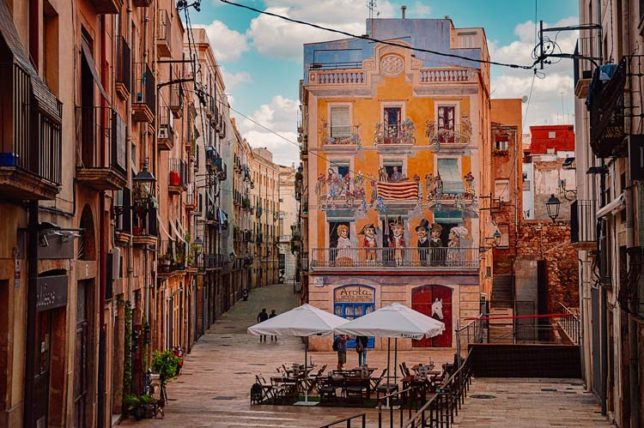
5 Comments. Leave new
I hardly comment on blog posts. But this one surely needs an appraise, so nicely the author crafted the FOMO fear in this social media world.
Quite helpful for my current mind state.. As my friends were going on frequent trips and i am staying at my place for most important exam of my life. Thank you
I soo loved this post, we have never in a hurry to see it all tbh. Like in our ate 30s we saw only 4 countries and still feel like going back to them for this amazing places we couldn’t see in your 1-3 weeks trips. Also i agree with you that travel is a luxury and we need to understand and accept it. Travel at your own pace the way you like to do not a competition to be in the same hotel as your favorite influencer did or tick on all the things they saw.Honestly its all about being content on what you can achieve.
So true.. there are indeed some places I would love to go back to and spend longer, too! And you’re right, there is already a ton of competition in our lives with all of us stuck in a perennial rat race… there’s no point in making travel a who-did-it-better contest!
Very well written and makes complete sense.
Very well written, kudos to you Tanya. FOMO involves a sense of helplessness that you are missing out on something big which affects self esteem, a self generated monester. Best way to overcome travel FOMO is to generate more positivity by concentrating on your achievements and deciding that subject travel did not fit in your life plan.